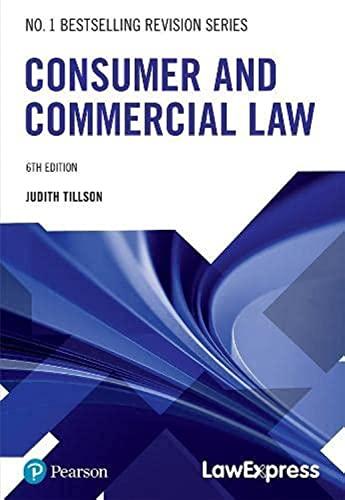Answered step by step
Verified Expert Solution
Question
1 Approved Answer
IRAC the following case. If you spot more than 1 issue within the case, you must complete separate IRAC's for each issue. For example: Issue:
IRAC the following case. If you spot more than 1 issue within the case, you must complete separate IRAC's for each issue. For example: Issue: Whether Sam was liable for a breach of contract? Rule: Application: Conclusion: Issue: Whether Paul was liable for negligence? Rule: Application: Conclusion: In the following case, Mortgage Grader, Inc. v. Ward & Olivo, L.L.P., the court held that under New Jersey LLP law, when one partner in an LLP commits malpractice, other partners in the LLP cannot be held vicariously liable for such alleged malpractice. While decided under New Jersey law, the decision would be the same under the RUPA. Mortgage Grader, Inc. v. Ward & Olivo, L.L.P Ward and Olivo established defendant Ward & Olivo, L.L.P. (W& O), a law firm engaged in the practice of intellectual property law. Ward and Olivo formed W& O as a limited liability partnership (LLP) pursuant to the UPA, and W& O obtained and maintained a claims-made professional liability insurance policy. On July 29, 2009, Mortgage Grader, Inc. (MG) retained W& O to sue various persons or entities for patent infringement. Olivo entered into a contingency fee agreement with MG and filed a lawsuit (the "underlying lawsuit") against several defendants. MG settled the underlying lawsuit ( "the settlements") by giving those defendants licenses in exchange for payment of a "one-time settlement amount. On June 30, 2011, Ward and Olivo stopped actively practicing law as W& O. Thereafter, W& O began winding up its law practice by collecting outstanding legal fees. W& O's professional liability insurance policy expired on August 8, 2011, and W& O did not purchase a tail insurance policy. In October 2012, MG filed a legal malpractice complaint against W& O, Olivo, and Ward alleging that Olivo's legal advice harmed MG's patent rights because Olivo, among other things, failed to require that royalty rates or licensing fees be part of the settlement. In the complaint, MG further alleged that W& O and Ward were vicariously liable for Olivo's acts or omissions. By the time MG filed its complaint, W& O's claims-made policy had expired, and W& O was uninsured. Ward had no involvement in the underlying lawsuit, the settlements, or Olivo's legal representation of MG. Ward contends that he is shielded from liability as a partner in an LLP and is, therefore, not vicariously liable for the alleged legal malpractice of his former partner, Olivo. He thus argues that MG's complaint against him should be dismissed. Fasciale, Judge In addressing whether Ward is shielded from Olivo's alleged malpractice, this Court looks to the statutory language to determine the Legislature's intent. When interpreting a statute, words are to be given their ordinary meaning and significance. The plain language of N.J.S.A. 42: 1A-18( c) clearly expresses the Legislative intent that the partners of an LLP are shielded from liability for a fellow partner's acts as it states, "An obligation of a partnership incurred while the partnership is [an LLP], whether arising in contract, tort, or otherwise, is solely the obligation of the partnership. A partner is not personally liable, directly or indirectly, by way of contribution or otherwise, for such an obligation solely by reason of being or so acting as a partner." Without LLP status, "all partners are liable jointly and severally for all obligations of the partnership...." Under the UPA, the status of an LLP remains effective until the LLP itself cancels its status, or the LLP's status is revoked by the Department of the Treasury in the event the LLP "fails to file an annual report when due or pay the required filling fee." Since the status of W& O remains an LLP, the court is dismissing the legal malpractice claim asserted by MG against Ward because he is not vicariously liable for the alleged malpractice of his former partner Olivo. Judgment of the trial court is reversed; judgment affirming this decision by the Supreme Court of New Jersey
Step by Step Solution
There are 3 Steps involved in it
Step: 1

Get Instant Access to Expert-Tailored Solutions
See step-by-step solutions with expert insights and AI powered tools for academic success
Step: 2

Step: 3

Ace Your Homework with AI
Get the answers you need in no time with our AI-driven, step-by-step assistance
Get Started


